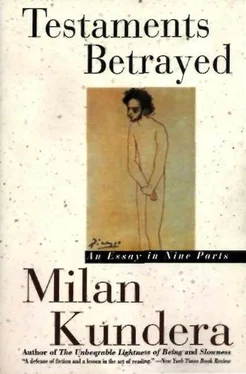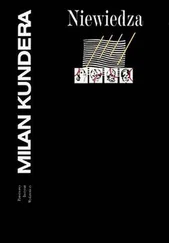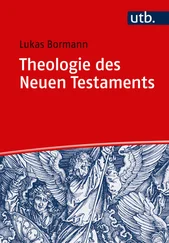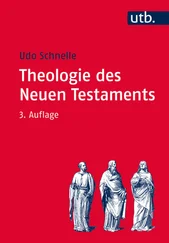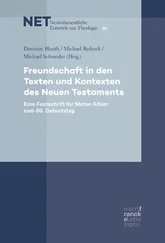Shame is one of the key notions of the Modern Era, the individualistic period that is imperceptibly receding from us these days; shame: an epidermal instinct to defend one's personal life; to require a curtain over the window; to insist that a letter addressed to A not be read by B. One of the elementary situations in the passage to adulthood, one of the prime conflicts with par-
ents, is the claim to a drawer for letters and notebooks, the claim to a drawer with a key; we enter adulthood through the rebellion of shame.
An old revolutionary Utopia, whether fascist or communist: life without secrets, where public life and private life are one and the same. The surrealist dream Andre Breton loved: the glass house, a house without curtains where man lives in full view of the world. Ah, the beauty of transparency! The only successful realization of this dream: a society totally monitored by the police.
I wrote about this in The Unbearable Lightness of Being: Jan Prochazka, an important figure of the Prague Spring, came under heavy surveillance after the Russian invasion of 1968. At the time, he saw a good deal of another great opposition figure, Professor Vaclav Cerny, with whom he liked to drink and talk. All their conversations were secretly recorded, and I suspect the two friends knew it and didn't give a damn. But one day in 1970 or 1971, with the intent to discredit Prochazka, the police began to broadcast these conversations as a radio serial. For the police it was an audacious, unprecedented act. And, surprisingly: it nearly succeeded; instantly Prochazka was discredited: because in private, a person says all sorts of things, slurs friends, uses coarse language, acts silly, tells dirty jokes, repeats himself, makes a companion laugh by shocking him with outrageous talk, floats heretical ideas he'd never admit in public, and so forth. Of course, we all act like Prochazka, in private we bad-mouth our friends and use coarse language; that we act different in private than in public
is everyone's most conspicuous experience, it is the very ground of the life of the individual; curiously, this obvious fact remains unconscious, unacknowledged, forever obscured by lyrical dreams of the transparent glass house, it is rarely understood to be the value one must defend beyond all others. Thus only gradually did people realize (though their rage was all the greater) that the real scandal was not Prochazkas daring talk but the rape of his life; they realized (as if by electric shock) that private and public are two essentially different worlds and that respect for that difference is the indispensable condition, the sine qua non, for a man to live free; that the curtain separating these two worlds is not to be tampered with, and that curtain-rippers are criminals. And because the curtain-rippers were serving a hated regime, they were unanimously held to be particularly contemptible criminals.
When I arrived in France from that Czechoslovakia bristling with microphones, I saw on a magazine cover a large photo of Jacques Brel hiding his face from the photographers who had tracked him down in front of the hospital where he was being treated for his already advanced cancer. And suddenly I felt I was encountering the very same evil that had made me flee my country; broadcasting Prochazkas conversations and photographing a dying singer hiding his face seemed to belong to the same world; I said to myself that when it becomes the custom and the rule to divulge another person's private life, we are entering a time when the highest stake is the survival or the disappearance of the individual.
There are almost no trees in Iceland, and the few that exist are all in the cemeteries; as if there were no dead without trees, as if there were no trees without the dead. They are not planted alongside the grave, as in idyllic Central Europe, but right in the center of it, to force a passerby to imagine the roots down below piercing the body. I am walking with Elvar D. in the Reykjavik cemetery; he stops at a grave whose tree is still quite small; barely a year ago his friend was buried; he starts reminiscing aloud about him: his private life was marked by some secret, probably a sexual one. "Because secrets excite such irritated curiosity, my wife, my daughters, the people around me, all insisted I tell them about it. To such an extent that my relations with my wife have been bad ever since. I couldn't forgive her aggressive curiosity, and she couldn't forgive my silence, which to her was evidence of how little I trusted her." He smiled, and then: "I divulged nothing," he said. "Because I had nothing to divulge. I had forbidden myself to want to know my friends secrets, and I didn't know them." I listened to him with fascination: since childhood I had heard it said that a friend is the person with whom you share your secrets and who even has the right, in the name of friendship, to insist on knowing them. For my Icelander, friendship is something else: it is standing guard at the door behind which your friend keeps his private life hidden; it is being the person who never opens that door; who allows no one else to open it.
I think of the ending of The Trial: the two men bend over K. and one of them thrusts a knife deep into his heart: "With failing eyes K. could still see, right near his face, the two men cheek by jowl watching the outcome: 'Like a dog!' he said; it was as if the shame of it must outlive him."
The last noun in The Trial: "shame." Its last image: the faces of two strangers, close by his own face, almost touching it, watching K.'s most intimate state, his death throes. In that last noun, in that last image, is concentrated the entire novel's fundamental situation: being accessible at any time in his bedroom; having his breakfast eaten by other people; being available, day and night, to go where he's summoned; seeing his window curtains confiscated; being unable to see whom he wants; no longer being his own man; losing his status as an individual. This transformation of a man from subject to object is experienced as shame.
I don't believe that Kafka asked Brod to destroy his letters because he feared their publication. Such an idea could scarcely have entered his mind. The publishers were not interested in his novels, why would they have cared about his letters? What made him want to destroy them was shame, simple shame, not that of a writer but that of an ordinary individual, the shame of leaving private things lying about for the eyes of others-of the family, of strangers-the shame of being turned into an object, the shame that could "outlive him."
And yet Brod made these letters public; earlier, in his own will and testament, he had asked Kafka "to destroy certain things"; and here he himself published everything, indiscriminately; even that long, painful letter found in a drawer, the letter that Kafka never decided to send to his father and that, thanks to Brod, anyone but its addressee could eventually read. To me, Brods indiscretion is inexcusable. He betrayed his friend. He acted against his friends wishes, against the meaning and the spirit of his wishes, against the sense of shame he knew in the man.
There is an essential difference between the novel on the one hand and memoirs, biography, autobiography, on the other. A biography's value lies in the newness and accuracy of the real facts it reveals. A novel's value is in the revelation of previously unseen possibilities of existence as such; in other words, the novel uncovers what is hidden in each of us. A common form of praise for a novel is to say: I see myself in that character; I have the sense that the author knows me and is writing about me; or as a grievance: I feel attacked, laid bare, humiliated by this novel. We should never mock such apparently naive judgments: thev prove that the novel is being read as a novel.
Читать дальше
